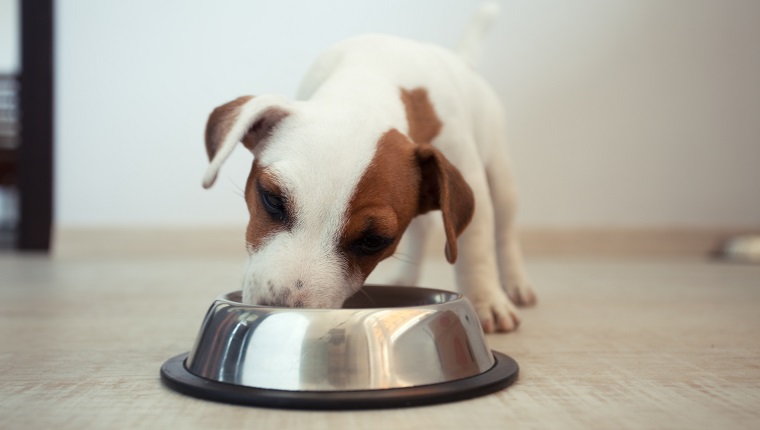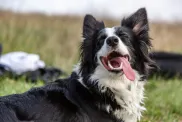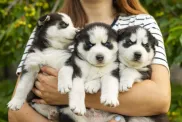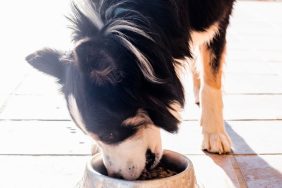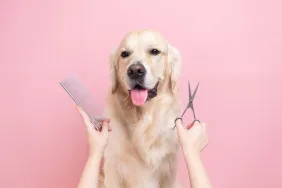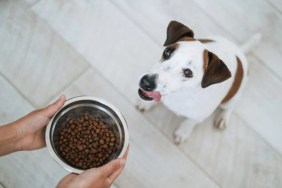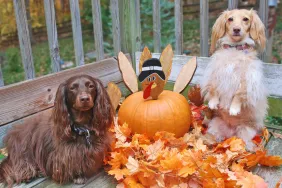Just like in humans, what our pets consume — or don’t — affects their health, especially when it comes to their skin and coat health. In fact, it’s one of the best visual indicators of a proper diet.
According to VCA, about 25 percent of vet visits for dogs are due to skin problems. When nutrition issues are at the root of those problems, they are often due to unbalanced diets, either due to their being poorly homemade or poor-quality commercial foods. Of course, your pet could sneakily be getting into additional food or inedible items that could be throwing off their diets, too.
Here are a few things you should know about the ways nutrition relates to your pet’s skin and coat.
Signs Of Nutritional Problems In Your Pet’s Skin & Coat
Here are some signs to watch for in your dog’s skin and coat, which could point to nutritional problems:
- Hair with split ends, which may be sparse, dull, brittle, or dry
- Slow or minimal growth in areas that have been trimmed or shaven
- Change in hair color
- Pressure sores
According to PetWebMD.com, this is also true for cats. Cats also require high-quality, properly balanced diets, and if they’re not getting that, their hair and skin can show sure signs of the deficit — or excess.
Poor nutrition that leads to being overweight can also prevent cats from grooming themselves, which would result in a shaggy, unkempt, dandruff-producing coat.
Here are some signs to watch for on your cat, which may be symptomatic of poor diet:
- Dry, flaky skin
- Dandruff
- Lusterless coat
- Unkempt coat
How Can You Improve Their Nutrition & Health?
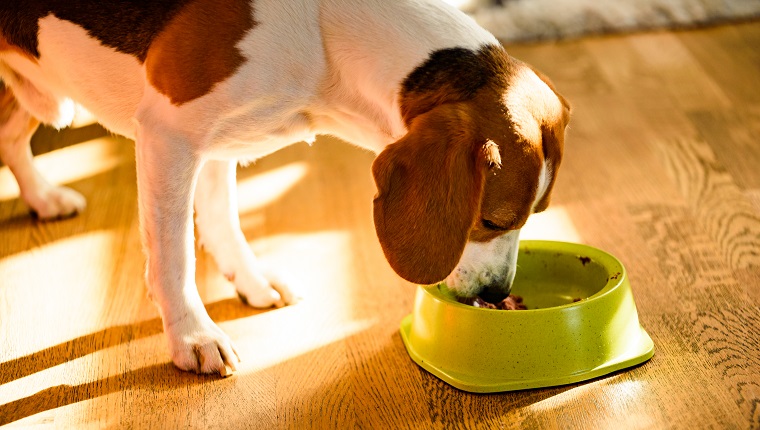
Fortunately, it is relatively easy to find optimal food targeted for your dog or cat’s size, age, and even breed. Even if they have allergies to certain ingredients, it’s usually possible to find a high-quality commercial feed that contains the nutrients your pet needs.
If, however, you need to make the food yourself — using your vet’s guidance — or if you want to boost your pet’s vitamin intake in addition to their regular food, you can choose to feed your pet supplements, available in liquid, solid tablet, or paste forms.
Supplements can also help in situations where your pet may naturally have a skin problem. For instance, if your dog has itchy skin, adding extra Omega-3 fatty acids can help with irritation. This can even help dogs with allergies lessen antihistamine dependence, in some cases.
These Omega-3 fatty acids can reduce inflammation on cats’ skin, too. Just remember, it’s important to consult with your vet on nutrient amounts and medications.
In addition to Omega-3s helping to keep your dog’s coat and skin lustrous and supple, essential fatty acids (EFAs) are also beneficial.
Your Pet’s Nutrient Profile
According to Robin Downing, DVM of VCA Hospitals, an average adult dog’s ideal nutrient profile may look like this:
- 25 to 30 percent dry-matter protein
- 10 to 15 percent dry-matter fat
Meanwhile, an ideal puppy’s nutrient profile should include:
- 30 to 35 percent dry-matter protein
- 15 to 30 percent dry-matter fat
For both puppies and adult dogs, overall digestibility should be above 80 percent.
Your cat food’s nutritional profile, on the other hand, should look like this:
- Less than 25 percent protein
- 20 to 24 percent fat
For both dogs and cats, food should include essential minerals, including Zinc, Copper, Vitamin A, Vitamin B, Vitamin C, and Vitamin E, which help with these skin factors:
- Copper: maintains proper pigmentation
- Zinc: prevents parakeratosis
- Vitamin A: sebum production and epidermal differentiation
- Vitamin B: prevents skin lesions and keeps skin moist
- Vitamin C: collagen synthesis
- Vitamin E: antioxidants that prevent alopecia, seborrhea, and skin infections
It’s important to feed our pets high-quality food with optimal nutrients, so we can ensure they have the healthiest, longest lives possible. If your pet’s skin or coat has started to lose its luster or become dry, talk to your vet about increasing certain nutrients through supplements or altered diet.
Do you notice your pet’s skin and coat are healthier when they get the right nutrients? Got any tips for skin and coat health that will help other pet parents? Let us know in the comments below!
